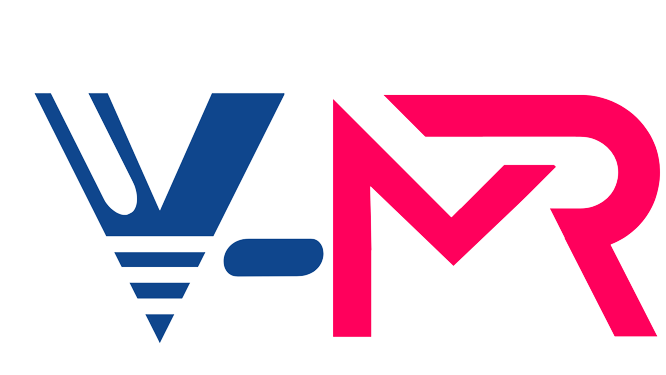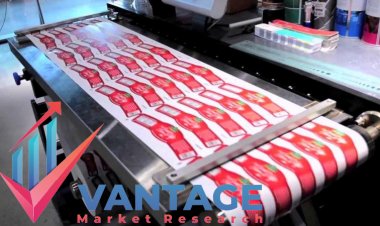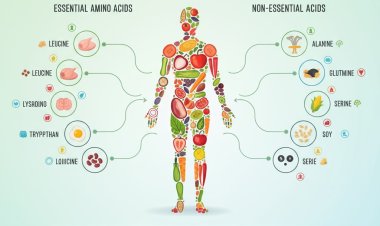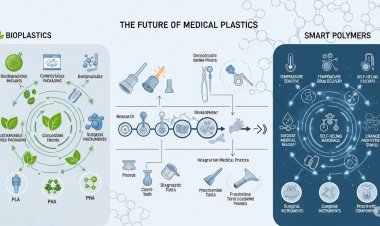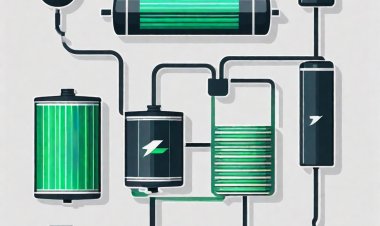Companion Diagnostics Market Size to Reach $10.3 Billion at a CAGR of 12.2% by 2030
Companion Diagnostics Market is projected to reach USD 10.3 Billion by 2028 at a CAGR (Compound Annual Growth Rate) of 12.2% over the forecast period.
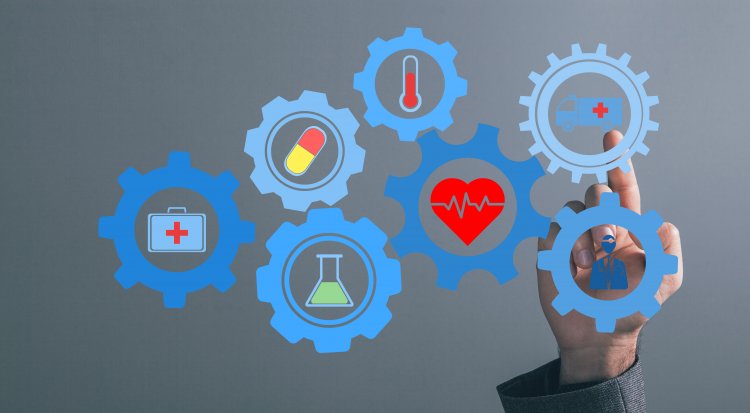
The Global Companion Diagnostics Market was valued at USD 5.2 Billion in 2021 and is projected to reach USD 10.3 Billion by 2028 at a CAGR (Compound Annual Growth Rate) of 12.2% over the forecast period.
The companion diagnostics market refers to the use of diagnostic tests to identify patients who are most likely to benefit from a specific treatment or therapy. Companion diagnostics are usually developed alongside specific drugs, and the tests help to ensure that the drugs are used only in patients who are most likely to benefit from them. This helps to ensure that patients receive the most appropriate treatment, and also helps to reduce healthcare costs by avoiding the use of ineffective treatments.
Click To Get a Free Sample On the Research Study @ https://www.vantagemarketresearch.com/companion-diagnostics-market-2021/request-sample
The global companion diagnostics market has been growing steadily in recent years, and is expected to continue to grow in the coming years. Some of the key factors driving the growth of the market include the increasing prevalence of chronic diseases such as cancer and cardiovascular diseases, the growing demand for personalized medicine, and the increasing use of targeted therapies.
Top Companies in Companion Diagnostics Market
- Abbott Laboratories Molecular Inc. (U.S.)
- ARUP Laboratories Inc. (U.S.)
- Agilent (Dako Denmark A/S) (U.S.)
- BioMerieux (France)
- Foundation Medicine Inc. (U.S.)
- Myriad Genetics Inc. (U.S.)
- Danaher Corporation (Leica Microsystems) (Germany)
- Roche (Ventana Medical Systems Inc.) (U.S.)
Click to Get In-depth Research Report on Competitive Landscape: https://www.vantagemarketresearch.com/companion-diagnostics-market-2021/request-sample
Companion Diagnostics Market Dynamics:
A medical tool called a companion diagnostic is used in conjunction with therapeutic medications to assess how well they work and how they affect a particular human body. Drugs are produced along with Companion Diagnostics Market to exclude or include groups of patients based on the traits with which they respond to therapy. This tool aids the medical practitioner in determining if a given course of therapy is in the patient's long-term interests.
As of 2021, Roche's Cobas EGFR Mutation Test v2 companion diagnostic for EGFR tyrosine kinase inhibitor for lung cancer treatment gained FDA clearance. A clinical test called Companion Diagnostic (CDx) was created in conjunction with a therapeutic medicine to identify patients who will respond and won't get to it. This is done to determine which patient groups can or cannot be treated with the matching medicine. Practitioners can ensure patient safety by using CDx to assist them in assessing therapeutic medications' advantages, drawbacks, and dangers.
Nowadays, it is commonly accepted that different people respond to medications differently because of advancements in genetic sequencing and genomics. The technique of giving "the correct drug, at the right time, at the right dose, for the right person" can be advanced by understanding a person's genetic traits or "biomarkers." To give focused therapeutics to the appropriate candidate, pharmaceutical and biopharmaceutical companies continuously work to adopt patient-selection diagnostic frameworks in the early stages of drug development. This helps the market for Companion Diagnostics Market grow even more.
Furthermore, The high cost of immunotherapy has restricted patient access, even though it has shown tremendous promise in treating cancer. Instead, doctors might decide that it is more effective to combine therapies, which might increase the length of the course of treatment from five months to almost three years. In this instance, the cost increases as the duration increases. Additionally, individualized immunotherapies are expensive. Examples include Kymriah, a Novartis-authorized CAR T-cell therapy, and YESCARTA, a Gilead Sciences-approved CAR T-cell therapy, which range in price from USD 373,000 to USD 475,000 per patient, depending on the kind of cancer being treated. With significant lab resources, each CAR-T cell treatment is created precisely for the patient. As a result, each patient will pay an average of $60,000 for the medicine. Cancer immunotherapies can be far more expensive than other treatment choices like chemotherapy or radiation therapy. Thus, it is anticipated that the market for Companion Diagnostics Market will have slow growth due to the high cost of immuno-oncology medicines.
What is Companion Diagnostics?
Companion diagnostics are medical tests that are used to identify patients who are most likely to benefit from a specific treatment or therapy. These tests are usually developed alongside specific drugs and are designed to help physicians make more informed treatment decisions by identifying patients who are most likely to respond to a particular treatment.
Companion diagnostics typically measure specific biomarkers or genetic mutations that are associated with a particular disease or condition. By identifying these biomarkers or mutations, physicians can determine whether a patient is a good candidate for a particular treatment and can adjust the treatment plan as needed to optimize patient outcomes.
Companion diagnostics are used in a wide range of therapeutic areas, including oncology, cardiovascular disease, and infectious diseases. They are an important tool for advancing personalized medicine, which aims to deliver more targeted and effective treatments to individual patients based on their unique genetic makeup and disease characteristics.
Overall, companion diagnostics are an important component of modern medicine, and they play a critical role in helping physicians make more informed treatment decisions and deliver more personalized care to patients.
Buy Now Our Companion Diagnostics Industry Report @ https://www.vantagemarketresearch.com/buy-now/companion-diagnostics-market-2021/0
Companion Diagnostics Market Challenges
Regulatory challenges: Developing and commercializing companion diagnostics requires regulatory approval, which can be a time-consuming and costly process. Companies need to navigate complex regulatory requirements and ensure that their diagnostic tests are safe, effective, and reliable.
Reimbursement challenges: Companion diagnostics are often expensive to develop and commercialize, and the cost of the tests can be a barrier to adoption. Companies need to work with payers to ensure that their tests are reimbursed at a fair price, which can be a challenging process.
Intellectual property challenges: Companion diagnostics often rely on patented technologies, and companies need to navigate complex intellectual property issues to ensure that they can bring their tests to market and protect their investments.
Commercialization challenges: Companion diagnostics are often developed in conjunction with specific drugs, which means that companies need to work closely with pharmaceutical companies to ensure that their tests are integrated into the drug development process and that they are effectively marketed to physicians and patients.
Technical challenges: Developing accurate and reliable diagnostic tests can be a complex and technically challenging process. Companies need to invest in research and development to ensure that their tests are accurate, reliable, and easy to use.
Key Developments:
- In July 2022, Almac Diagnostic and AstraZeneca CDx partnered. They intend to use NGS and qPCR to investigate new disease areas.
- In May 2021, A companion diagnostic was approved for use in the United States to help identify patients with non-small cell lung cancer (NSCLC) who could benefit from LUMAKRASTM (sotorasib), a recently approved therapy developed and marketed by Amgen Inc., QIAGEN N.V. announced the expansion of companion diagnostic (CDx) claims for the therascreen KRAS RGQ PCR Kit (therascreen KRAS Kit) (AMGN).
Companion Diagnostics Market Regional Analysis
In 2021-22, North America had the highest revenue share of 45.6%. During the forecasting period, North America is anticipated to grow the market. The high incidence of various cancers among the American population drives the North American market. In Canada, the number of cancer patients is steadily increasing. The Canadian Cancer Society estimates that cancer is responsible for about 28.2% of fatalities in Canada. According to Canadian Cancer Researchers, there will be an increase of 229,200 new instances of cancer in Canada, of which 84,600 cancer patients will pass away.
Read Our Latest Press Release: Data Center Colocation Market - In-depth Analysis
Contact us
Eric Kunz
6218 Georgia Avenue NW Ste 1 - 564
Washington DC 20011-5125
United States Tel: +1 202 380 9727
Email: [email protected]
Website: Vantage Market Research
